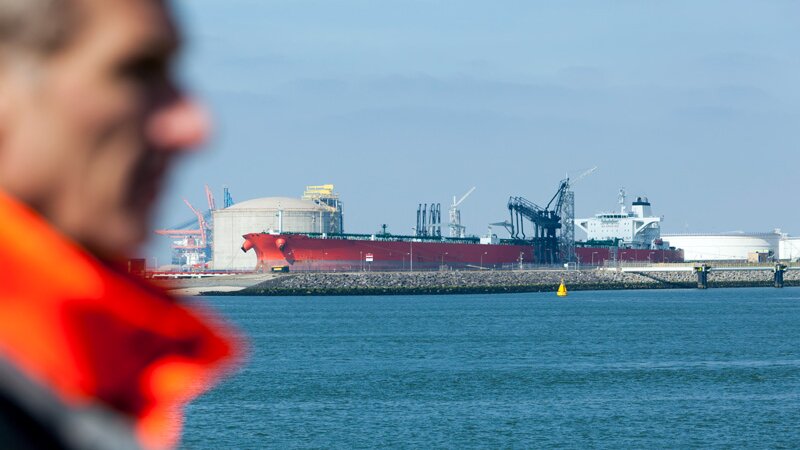Our new NorthStandard site is now live. There will be no new content or updates added to this site. For the latest information, please visit our new site north-standard.com.
Article: Clause paramount
News & Insights 4 June 2021
Members often ask whether it is necessary to include a clause paramount in a charterparty. This article explains the importance of including a clause paramount and the implications on club cover.

What is a clause paramount?
A clause paramount is a clause that incorporates a cargo liability regime, usually the Hague or Hague-Visby Rules (the Rules), into a contract. Such clauses are necessary to incorporate the Rules into a charterparty as, under English law, the Rules are not compulsorily applicable to charterparties. See, for example, Clause 24 of the NYPE 1946 form, which reads as follows:
‘It is further subject to the following clauses… the Carriage of Goods by Sea Act of the United States, approved April 16, 1936, which shall be deemed to be incorporated herein…’
Will cover be prejudice if clause paramount is not incorporated into a charterparty?
Club cover is available for cargo liabilities, subject to a number of exclusions which are found in all International Group club rules. In particular, claims arising from the carriage of cargo on contractual terms more onerous to the carrier than as provided for in the Rules will generally be discretionary.
Whether or not a clause paramount is included in a charterparty is a matter of commercial risk and negotiation. Furthermore, whilst it is not a prerequisite for P&I cover that all charterparties are to contain a clause paramount (and thus incorporate the Rules), there could be P&I cover implications if, as a result of the absence of a clause paramount, an owner member is held liable for a cargo claim over and above that which would have been incurred had the contract been subject to the Rules.
What is the effect of a clause paramount in a charterparty?
Defence of claims outside of cargo loss or damage
Where the Rules are successfully incorporated into a charterparty, their application will not be limited to cargo claims alone. An owner may also benefit from the defences provided for by the Rules in respect of other claims.
This was demonstrated in The Saxon Star[1] which involved consecutive voyage charters containing a clause paramount. Delays occurred on the voyages, including in ballast, due to breakdowns of machinery caused by the incompetence of the engine room staff, rendering the ship unseaworthy. They were incompetent notwithstanding that the owner had exercised due diligence in their selection. It was held that the Rules applied to all voyages under the charter (whether in ballast or with cargo) and the due diligence defence was available to owners beyond physical loss or damage to cargo; covering also the financial loss to the charterer from the reduction in the number of voyages performed.
It has also been suggested that when the Rules are incorporated into a time charter (see Clause 24 of the NYPE form) the ‘absolute’ obligation of seaworthiness on delivery is reduced to one of due diligence before and at the beginning of each voyage under the subject time charter.[2]
Time limit
If the Rules are incorporated into a charter an owner can also rely on the one-year time limit in respect of cargo claims brought under the charter. This covers proceedings by a charterer against an owner. It does not, however, cover proceedings by the owner against the charterer – it is to be used as a “shield” not a “sword”.
The words ‘loss or damage’ in the Rules are not necessarily restricted to physical loss of or damage to goods. They can be extended to loss or damage related to goods – such as extra tank cleaning costs, pumping costs, standby lifting equipment and/or substitute cargo costs. The question of whether there is a sufficiently close relationship between ‘loss or damage’ claimed and the ‘goods’ in question of fact in each case.
An owner’s ability to rely on the one-year time limit also depends upon the construction of the particular clause paramount in the subject charter. For example, there is a difference between the NYPE form compared with the Shelltime standard form. The English courts have typically held that the former contains wider and more expansive incorporation of clauses than the latter. This should be of no real surprise given that the Shelltime forms are generally more ‘charterer friendly’.
Words of incorporation
Charterparties may contain a clause paramount ensuring that bills of lading issued under the charter are subject to the Rules, but it does not necessarily mean that the Rules are incorporated into the charterparty itself. For instance, wordings such as ‘The following clause shall be included in all bills of lading issued pursuant to this Charter’ (Cl. 37, ShellVoy 6 form) or ‘Charterers shall procure that all bills of lading issued under this charter shall contain the following’ (Cl. 38, Shelltime 4 form) are not sufficient to incorporate the clause paramount into the subject charter.
However, the following wording is deemed sufficient to incorporate the clause paramount into the subject charter: ‘This Charter Party is subject to the following clauses all of which are also to be included in all bills of lading or waybills issued hereunder’ (Cl.31, NYPE 1993 form).
Once incorporated, the clause paramount may conflict with other clauses in the contract and, in these circumstances, it is especially important that attention be paid to the precise wording of the clauses at issue. As a general principle of construction, the preamble of the clause will usually identify which clause overrides another. For instance, if the incorporation commences with the words ‘Notwithstanding anything which may otherwise be stated in the charter…’, the clause paramount is likely to prevail over the other clause.[3]
The effect of incorporation
If the clause paramount is successfully incorporated into the subject charter, it will often override any other conflicting clause by virtue of Article III Rule 8 of the Rules. For example, clause 2 of the standard GENCON charterparty holds the owner liable for loss, damage or delay caused only by the personal want of due diligence and excludes the owner’s liability for (mere) negligence of the master or crew. Such a clause would be null and void if a paramount clause were incorporated into this charter.
However, Article III Rule 8 doesn’t prevent the parties to a charterparty from transferring obligations and liabilities for, say, loading, stowage and/or discharge of cargo from an owner to a charterer.[4]
Which rules are incorporated?
It has historically been held by the English courts that a general reference to a clause paramount will give effect to the Hague Rules (not the Hague-Visby Rules). However, in The Superior Pescadores[5], the bill of lading provided for ‘The Hague Rules contained in the International Convention of the Unification of certain rules relating to Bills of Lading, dated Brussels 25 August 1924 as enacted in the country of shipment’. The Court of Appeal held that the clause paramount contractually incorporated the Hague-Visby Rules as they were applicable in the country of shipment and in England which the parties agreed had jurisdiction over the claim.
Package limitation
An important distinction between the Hague and the Hague-Visby Rules that an owner and charterer should consider when deciding which clause paramount to agree to is the applicability of package limitation.
The Hague Rules contain a limitation of ‘£100 per package or unit’ and a recent decision of the English Commercial Court held that this limit does not apply to bulk cargoes.[6]
Conversely, the Hague-Visby Rules provide for ‘the equivalent of 666.67 units of account per package or unit or 2 units of account per kilo of gross weight of the goods lost or damaged, whichever is the higher’ and therefore apply to both bulk and containerised cargoes.
Conclusion
Whether or not a clause paramount is included in a charterparty is a matter of commercial risk and negotiation. It is nearly always beneficial for an owner to have a clause paramount incorporated into a charterparty. If such a clause is not to be included then the owner should consider the implications carefully and weigh up the ‘pros and cons’. Parties should then know exactly the nature of the bargain they are entering into.
[1] Adamastos Shipping v Anglo-Saxon Petroleum (The Saxon Star) [1958] 1 Lloyd’s Rep. 73 (H.L.)
[2] Time Charters, Authors: Terence Coghlin, Andrew Baker, Julian Kenny, John Kimball and Thomas H. Belknap Jr; Edition: 7th Edition, 2014
[3] The Tasman Discoverer [2004] 2 Lloyd’s Rep. 647
[4] The EEMS SOLAR QBD, Admiralty Court, Admiralty Register, 5 June 2013
[5] The Superior Pescadores [2016] 1 Lloyd’s Rep. 27
[6] The Aqasia [2016] EWHC 2514 (Comm).
类别: Bills of Lading


